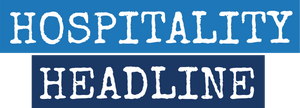In the dynamic realm of business, the art of decision-making is a critical skill that directly impacts an organization's path to success or failure. I've experienced firsthand how the complexities of decision-making can challenge even the most seasoned leaders. This article explores the nuanced landscape of business decision-making, addressing key challenges such as the dilemma of insufficient information, the importance of data quality, the trap of analysis paralysis, the critical need for prioritizing decisions, and the often overlooked influence of emotions.
Navigating the Information Maze
A common hurdle in decision-making is the scarcity of information. Ideally, decisions should be informed by comprehensive, accurate data. Yet, leaders often find themselves in situations where vital information is missing or elusive, leading to delays or uncertainty in decision-making.
On the flip side, the quality of available information can also pose a challenge. In an era where data is plentiful, not all of it is relevant or accurate. Leaders must sift through the noise to find actionable insights, a task that requires deep understanding of the business landscape and strategic goals.
The problem of information overload further complicates the decision-making process. With an overwhelming amount of data at their fingertips, leaders can fall into the trap of analysis paralysis, where the fear of making an incorrect decision leads to inaction. This indecision can be detrimental, as it may result in missed opportunities and hindered progress.
Strategic Prioritization and the Cost of Delay
To effectively combat these challenges, it's crucial to prioritize decisions based on their potential cost, speed of implementation, and overall impact on the organization. Understanding which decisions hold the most significance allows leaders to allocate their resources and focus where it's needed most. Invest your efforts in the high impact important decisions and assign lower level decisions to others.
The consequences of delaying decisions are significant, affecting both strategic direction and operational efficiency. Procrastination can result in missed market opportunities, diminished competitiveness, and a loss of confidence among stakeholders. Quick, decisive action is often a key differentiator in today's fast-paced business environment.
The Value of Diverse Perspectives
Incorporating alternative viewpoints into the decision-making process is invaluable. Different perspectives can reveal new insights, challenge prevailing assumptions, and lead to more innovative solutions. Fostering an environment where diverse opinions are sought and valued can greatly enhance the quality of decisions made.
The Emotional Dimension of Decision-Making
Decision-making can be overwhelming due to the significant consequences of each choice. The fear of error, coupled with the weight of responsibility, can be daunting. Additionally, the role of emotions in decision-making should not be underestimated. Emotions influence our choices more than we might like to admit, and recognizing this can help leaders make more balanced, objective decisions.
Five Immediate Actions for Better Decision-Making
As a business leader, you can take several steps to enhance your decision-making process immediately:
- Establish a clear decision-making framework: Define criteria for prioritizing decisions based on their urgency, impact, and alignment with strategic goals.
- Seek out diverse perspectives: Actively encourage input from team members with different backgrounds and expertise to challenge your assumptions and broaden your understanding.
- Limit information intake: Focus on gathering only the most relevant data to avoid overload and facilitate quicker, more informed decisions.
- Embrace calculated risks: Recognize that waiting for perfect information is impractical. Make the best decision possible with the information at hand and be prepared to adjust as new data becomes available.
- Acknowledge and manage emotions: Be aware of how your feelings may be influencing your decisions. Strive for emotional intelligence by recognizing, understanding, and managing your emotions and those of others involved in the decision-making process.
- Decide and be done: Once you've made a decision then move on. Don't second guess yourself, instead shift your efforts to the next set of priorities.

